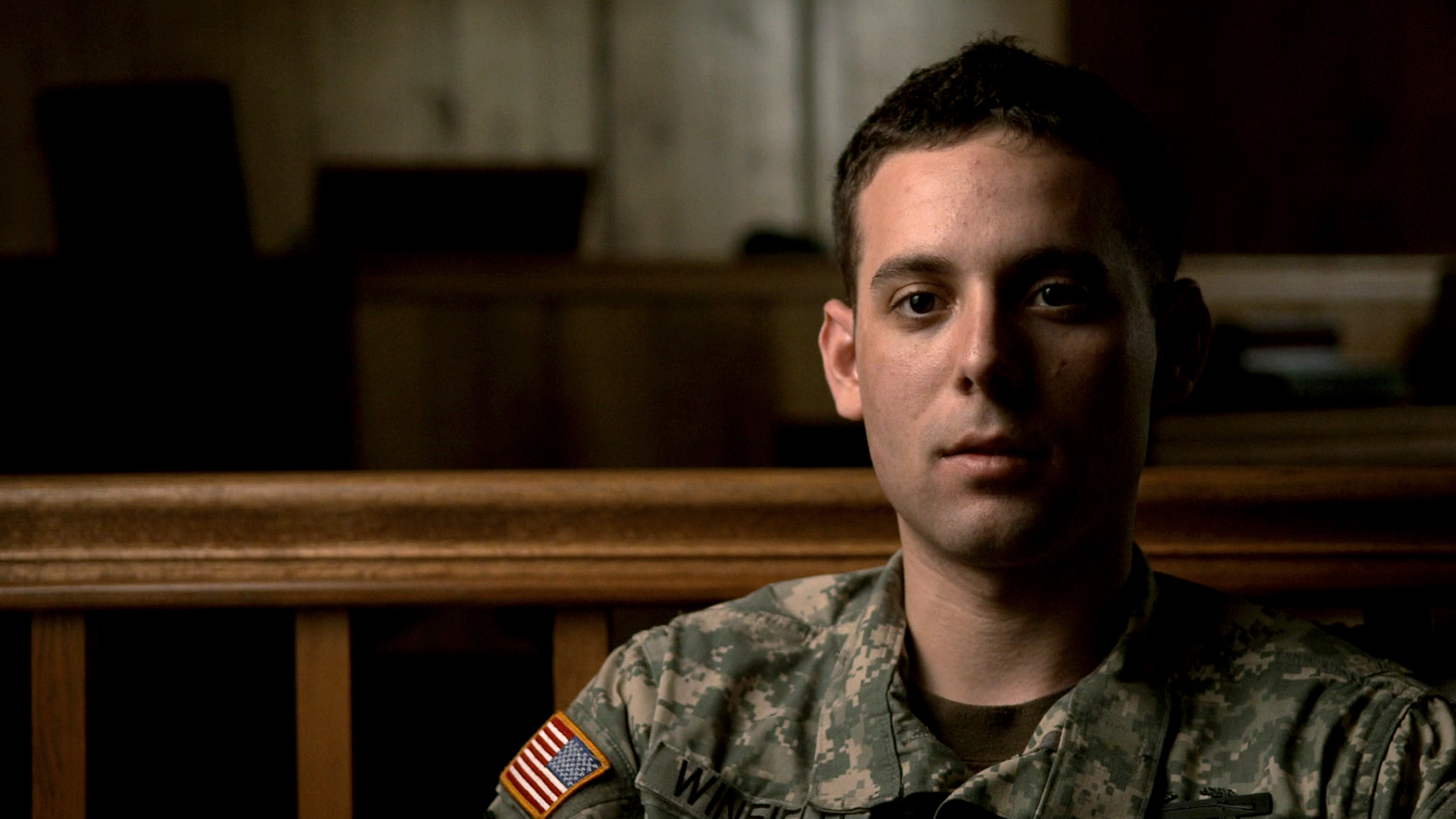Is the story of The Kill Team singular? That’s the unspoken question that hangs over this award-winning documentary, another artifact from the “war on terror.” In 2010 a group of soldiers from Joint Base Lewis-McChord was arrested and charged with murdering Afghan civilians for fun while stationed in Kandahar Province. The accused had taken photographs of themselves with the corpses of their victims and in some cases collected body parts as trophies. The film lays out the chronology of the crimes, with a particular emphasis on the torment of Specialist Adam Winfield. Twenty years old at the time of the killings, Winfield is in the hapless position of being both whistle-blower and perpetrator.
Filmmaker Dan Krauss interviewed Winfield and some of the other principals in the case during the 2011 trial at Ft. Lewis (covered here and in all the other local media). Winfield, still jittery, describes his alarm at hearing that a new sergeant, Calvin Gibbs, had cultivated the idea of a “kill team” in Winfield’s platoon. Winfield feared for his own safety if he reported the crimes, but he told his ex-Marine father about them. The elder Winfield’s reports to military brass did not lead to action. Somehow Krauss got three other members of the platoon to talk on camera; Gibbs is noticeably—and not surprisingly—absent. Their remarkably calm accounts of dehumanization and violence are chilling in their detail. They describe Gibbs as a swaggering action-movie warrior, with his cache of dead men’s finger bones and his skull tattoos denoting each “kill.”
Their interviews create a portrait of occupational boredom, anger, and resentment, spinning in a perpetual cycle. The film, to its credit, creates little sense of catharsis or resolution. Despite being intimidated into participating in the final killing because he says he feared for his own life (a threat that is confirmed by another platoon member), Winfield is given the choice of pleading guilty to two different charges. There’s little sense of a system working, and Private First Class Justin Stoner flatly declares, “We’re just the ones who got caught.” These crimes only accidentally came to light: When Stoner was annoyed at his fellow soldiers for smoking hashish in his room, he reported them to his superiors, which led to the discovery of the human bones kept as trophies. Stoner got beaten up for informing, which is why we see photographs of him—taken to document his bruises—that show a tattoo that stretches across his back and reads, “What If I’m Not the Hero.” It’s a quote from the Twilight series, and it rounds off the utterly disheartening experience of watching this excellent film. Opens Fri., Aug. 15 at Varsity. Not rated. 79 minutes.
film@seattleweekly.com







